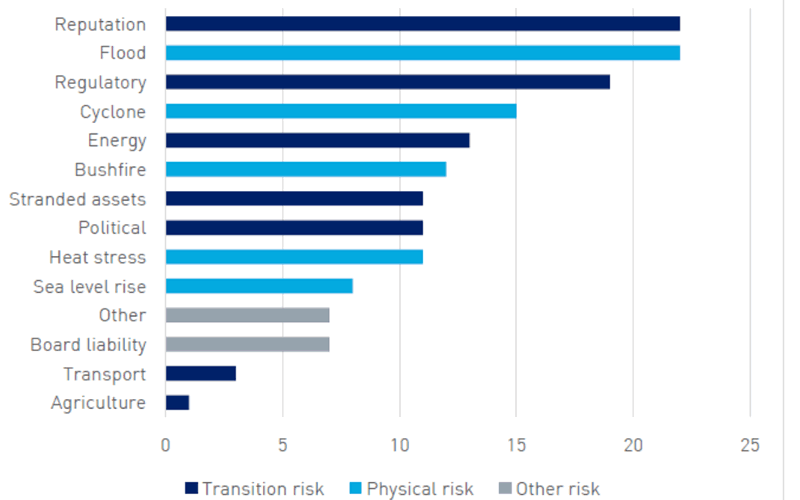APRA’s increased pressure on major financial institutions to manage the financial risks of climate change
In the Reserve Bank’s first substantial comments on the topic on March 12, deputy governor Guy Debelle warned that climate change could cause financial shocks if companies did not take these risks seriously in their planning (see Risk Frontiers Briefing Note 391: ‘Change now or pay later’: RBA’s stark warning on climate change). The following week, on March 20, the Australian Prudential Regulation Authority (APRA) stepped up pressure on our biggest financial institutions with its commitment to increase scrutiny of how they are ‘managing the financial risks of climate change to their businesses’ and their call for them to ‘move from gaining awareness of the financial risks to taking action to mitigate against them’.
The announcements were made in conjunction with the release of its Information Paper entitled Climate change: Awareness to Action that provides insights into their first climate change survey undertaken in mid-2018 and designed to align with the Task Force on Climate-related Financial Disclosures (TCFD) recommended framework. Various themes were analysed as part of the survey (e.g. relating to Risk Awareness and Management, Governance, Strategy, Metrics and Targets, Disclosure) of 38 large banks, insurance companies, and superannuation trustees.
The survey found that a substantial majority of regulated entities were taking steps to increase their understanding of climate-related financial risks, including all of the banks, general insurers and superannuation trustees surveyed. It also showed that, among many other findings:
- A third of respondents viewed climate change as a “material” risk to their businesses right now. A further half thought it would be a “material” risk at some point in the future.
- A majority of banks considered climate-related financial risks as part of their risk management frameworks as did most general insurers that indicated climate change risks to be material to their business.
- About 70% of general insurers indicated that they were undertaking financial analysis on key risks whereas no life insurers indicated they were doing so.
The most common types of climate-related financial risks identified across all survey respondents were damage to reputation, flood, regulatory action, cyclone, energy, and bushfire with the full list shown in Figure 1.
Risk Frontiers’ range of models and tools covering flood, tropical cyclone, bushfire, heatwaves and sea-level rise can assist organisations in assessing their current and future risks to these perils.

About the author/s

Paul Somerville
Paul is Chief Geoscientist at Risk Frontiers. He has a PhD in Geophysics, and has 45 years experience as an engineering seismologist, including 15 years with Risk Frontiers. He has had first hand experience of damaging earthquakes in California, Japan, Taiwan and New Zealand. He works on the development of QuakeAUS and QuakeNZ.
